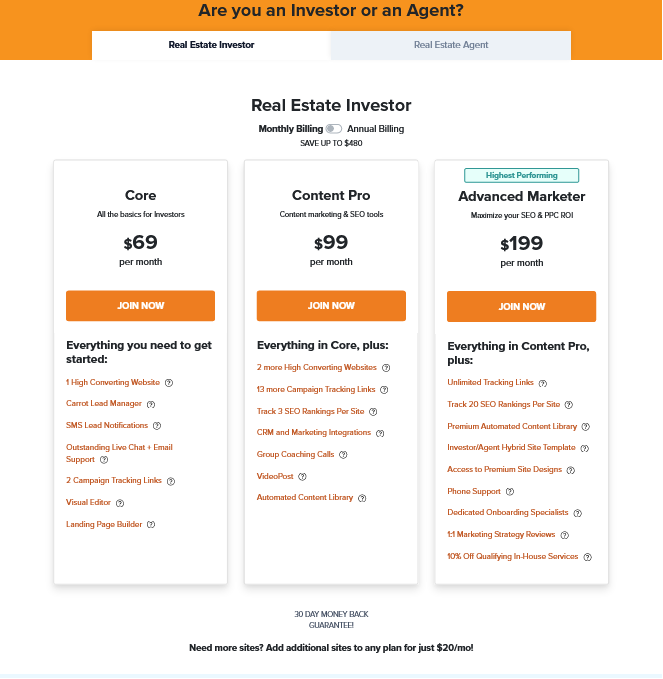Best Real Estate CRM

Carrot
Traditional websites are just a digital business card. As a real estate agent or investor, you need an online presence to win in today’s busy market. Now imagine a website that boosts your credibility and offers you plenty of marketing opportunities- at the same time being optimized for SEO, lead conversion, and much more.
Key Features:
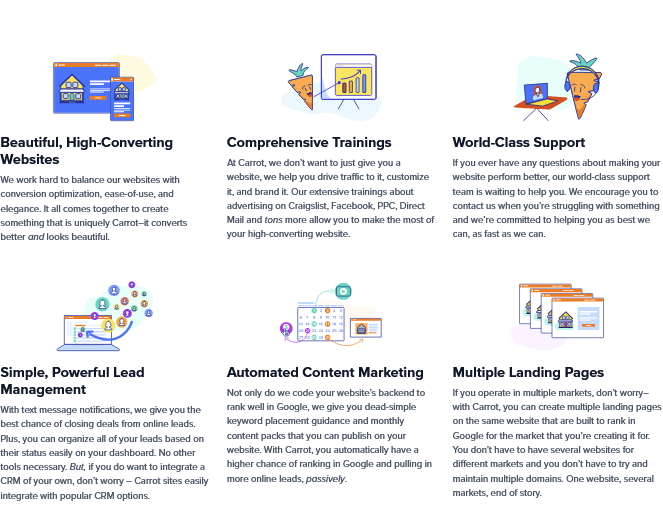
[maxbutton id=”1″ url=”https://az122.isrefer.com/go/demo/zelp64/” text=”Try Carrot” window=”new” ]
Flipperforce
Flipping houses has never been easier. Get access to all the tools, resources & best practices you need in one single place. Get insight into deals so you know how to negotiate, estimate rehab costs quickly and accurately without the added hassle of trying to find a contractor, and much more!

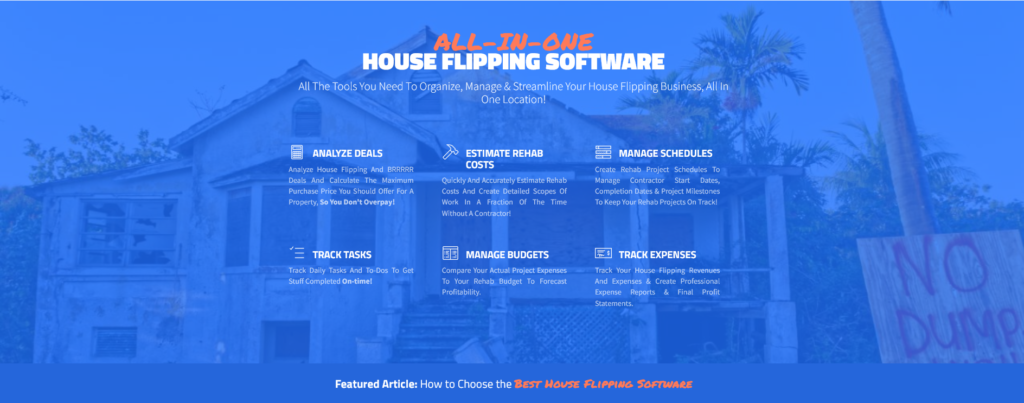
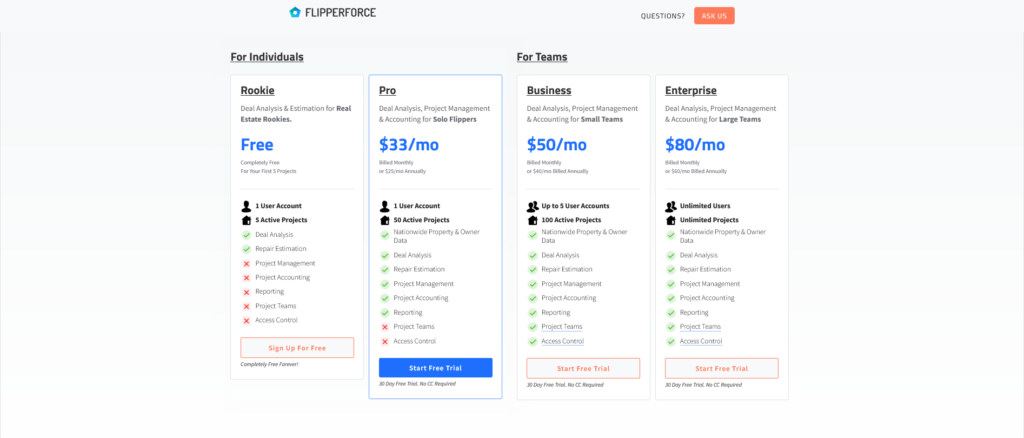
Realtyna
If you are looking for a flexible, scalable and affordable web / mobile solution for your Real Estate business, you are in the right place. An independent full platform based on the most famous CMS: WordPress, with hundreds of features and lots of useful add-ons
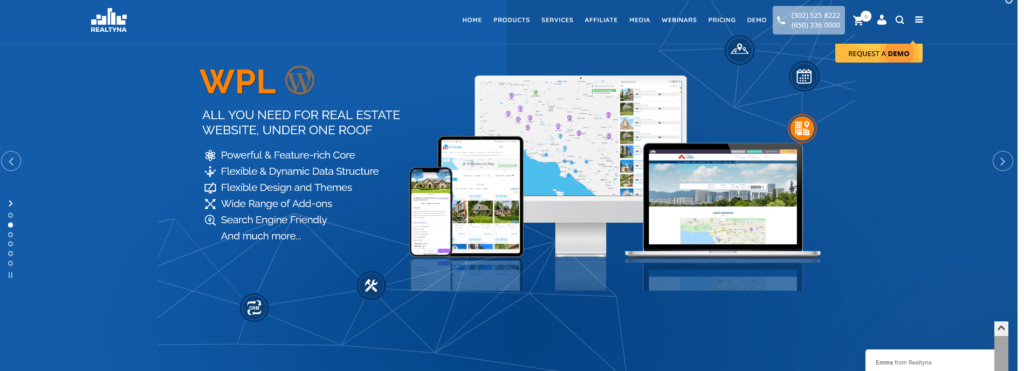
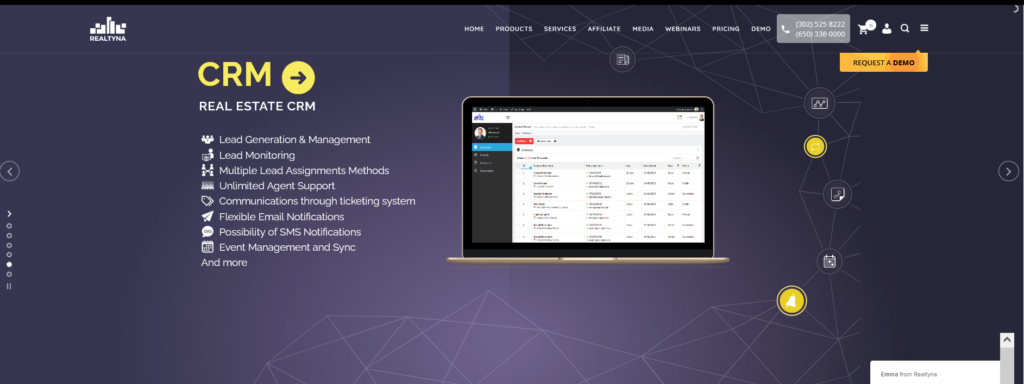
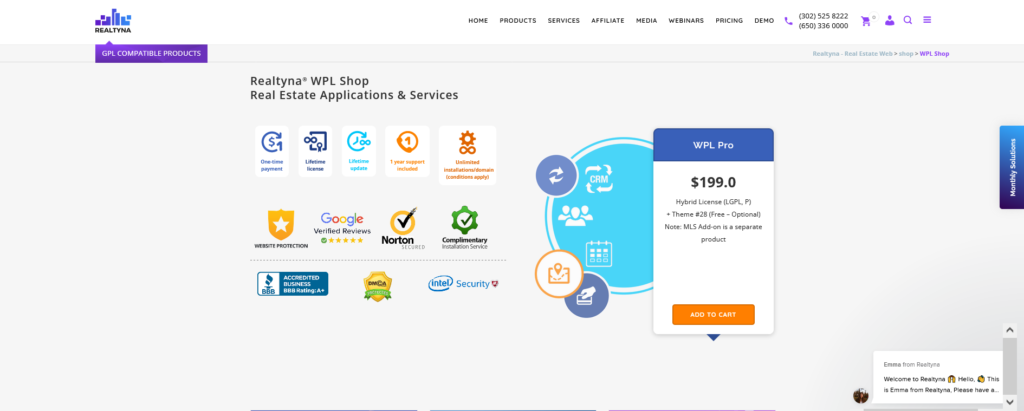
Birddogbot
Find The Best Real Estate Deals In Your Market. BirdDogBot Runs Lightning-Fast Searches Of Its Entire Network Of Freely Available Property Listing Sites For The Best Deals In Your Market That Meet Your Investing Criteria. Laser-Target The Deals You Want, Search For Properties By Any Combination Of City, State, Zip, Or County. You Can Further-filter By Price Ranges, Bedrooms, Bathrooms, Listing Status, And Property Type.

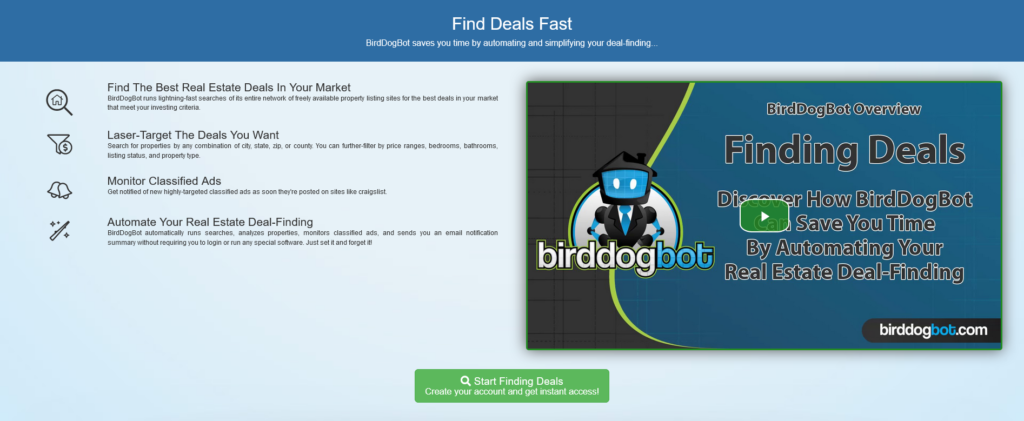
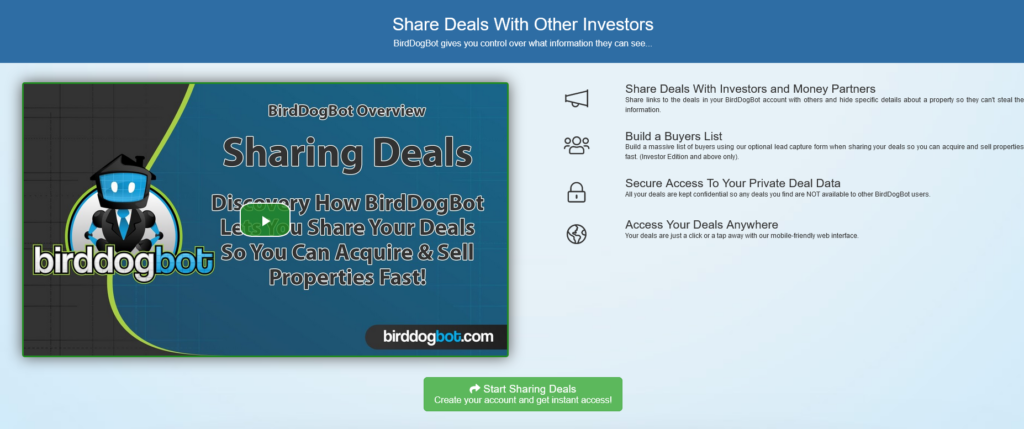
Dealcheck
DealCheck is the simplest and fastest way to analyze and compare investment properties on your computer, phone or tablet. Trusted by over 200,000 real estate investors and agents, it’s the leading real estate analysis platform that has been featured by Forbes, MSN, BiggerPockets and others.
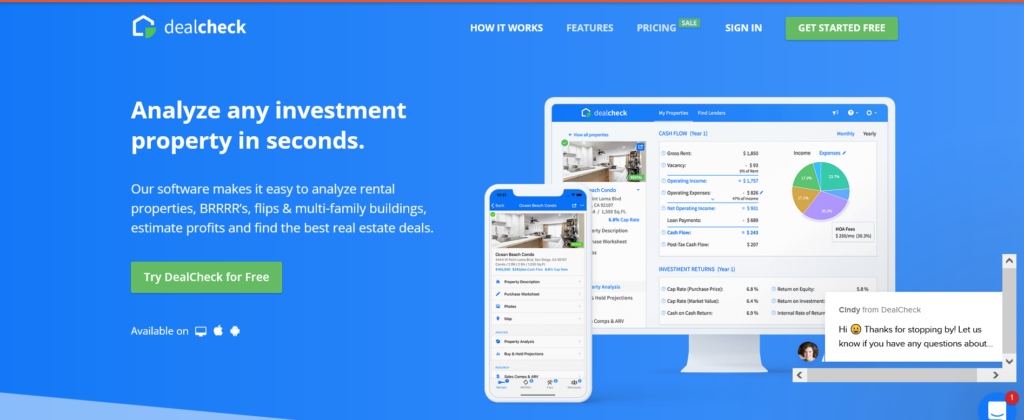
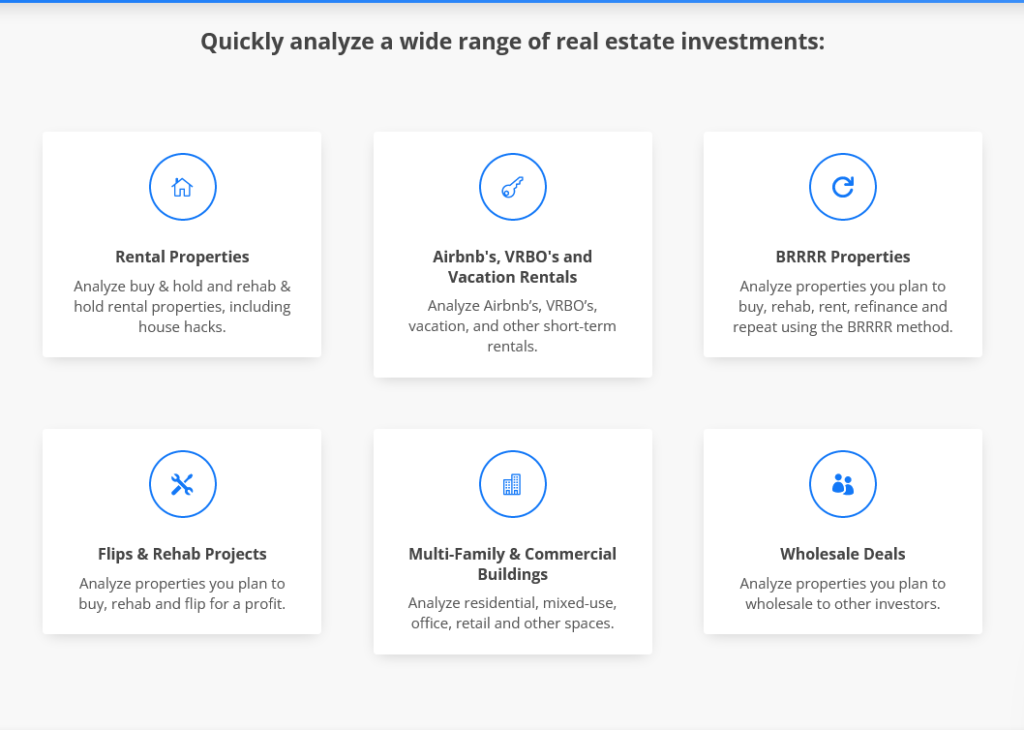
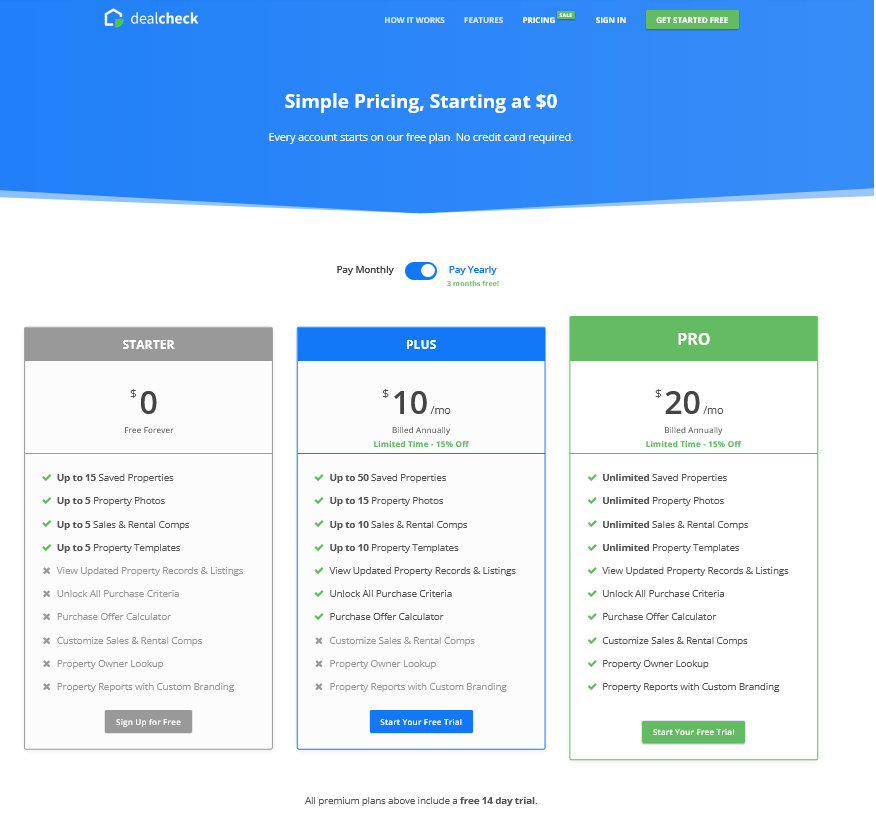
Foreclosure.com
Foreclosure.com delivers the best real estate deals first, well before they hit the mass market. As you know, perfect timing – not just “location, location, location” – is critical when it comes to purchasing a new home and/or investment property at the right (lowest possible) price. That’s because competition drives prices up.

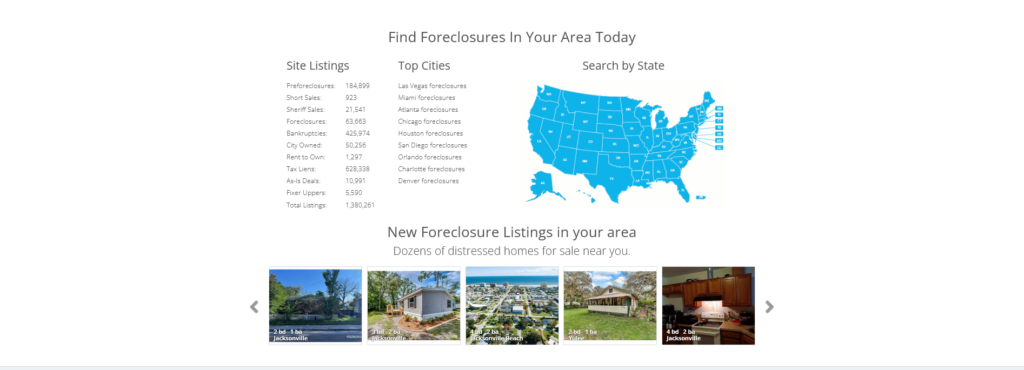

Best Real Estate CRM
FAQ
What is a real estate CRM? A real estate CRM, or Customer Relationship Management, is software designed specifically for professionals in the real estate industry to manage and organize their contacts, leads, deals, and communication effectively. It provides features such as lead management, deal tracking, contact management, and analytics to streamline operations and enhance productivity.
How can a real estate CRM benefit my business? A real estate CRM can benefit your business in several ways. It helps you capture and manage leads more efficiently, improves communication with clients, centralizes contact information, simplifies deal tracking, and provides valuable insights through analytics and reporting. By optimizing these areas, you can enhance productivity, strengthen client relationships, and drive business growth.
Is a real estate CRM suitable for both individual agents and teams? Absolutely! A real estate CRM is designed to cater to the needs of both individual agents and teams. It provides functionalities that support collaboration, task assignment, and shared calendars for teams, while also offering personalized contact management and lead nurturing features for individual agents.
Can I integrate a real estate CRM with other tools and platforms? Yes, most real estate CRM solutions offer integration capabilities with other essential tools and platforms. This includes email marketing software, property listing websites, accounting software, and more. Integrations allow for seamless data synchronization, eliminating the need for manual data entry and ensuring data consistency across platforms.
Is a real estate CRM suitable for property developers and investors? Absolutely! Real estate CRM systems are not limited to real estate agents alone. Property developers and investors can also benefit greatly from using a CRM. They can utilize features like lead management, deal tracking, and analytics to effectively manage their projects, track investment opportunities, and streamline communication with partners, contractors, and stakeholders.
Can a real estate CRM help with lead generation? Yes, lead generation is a core feature of a real estate CRM. It provides tools to capture, organize, and nurture leads. Through lead capturing forms on your website, landing pages, or social media platforms, the CRM enables you to gather potential leads’ contact information. You can then use automated email campaigns, lead scoring, and personalized communication to nurture those leads and increase the chances of conversion.
How secure is my data in a real estate CRM? Data security is a top priority for reputable real estate CRM providers. They employ industry-standard security measures such as data encryption, secure servers, and regular data backups to protect your information. Before choosing a CRM, ensure that they have robust security protocols in place and comply with relevant data protection regulations.
Can I access a real estate CRM on mobile devices? Yes, many real estate CRM platforms offer mobile applications that allow you to access and manage your CRM on the go. These mobile apps provide features like lead management, contact management, deal tracking, and communication tools, ensuring you can stay connected and productive while working remotely or attending property showings.
How much does a real estate CRM cost? The cost of a real estate CRM can vary depending on factors such as the CRM provider, the features and functionalities included, the size of your team, and the level of customization required. CRM pricing typically involves monthly or annual subscription plans. It’s important to evaluate your specific needs and budget when selecting a CRM that aligns with your requirements.
What kind of support is available for real estate CRM users? Real estate CRM providers typically offer various support options for their users. This can include documentation, knowledge bases, video tutorials, and user forums for self-help. Additionally, many providers offer customer support through email, live chat, or phone, where you can reach out for assistance with technical issues, implementation guidance, or general inquiries.
Best Real Estate CRM

